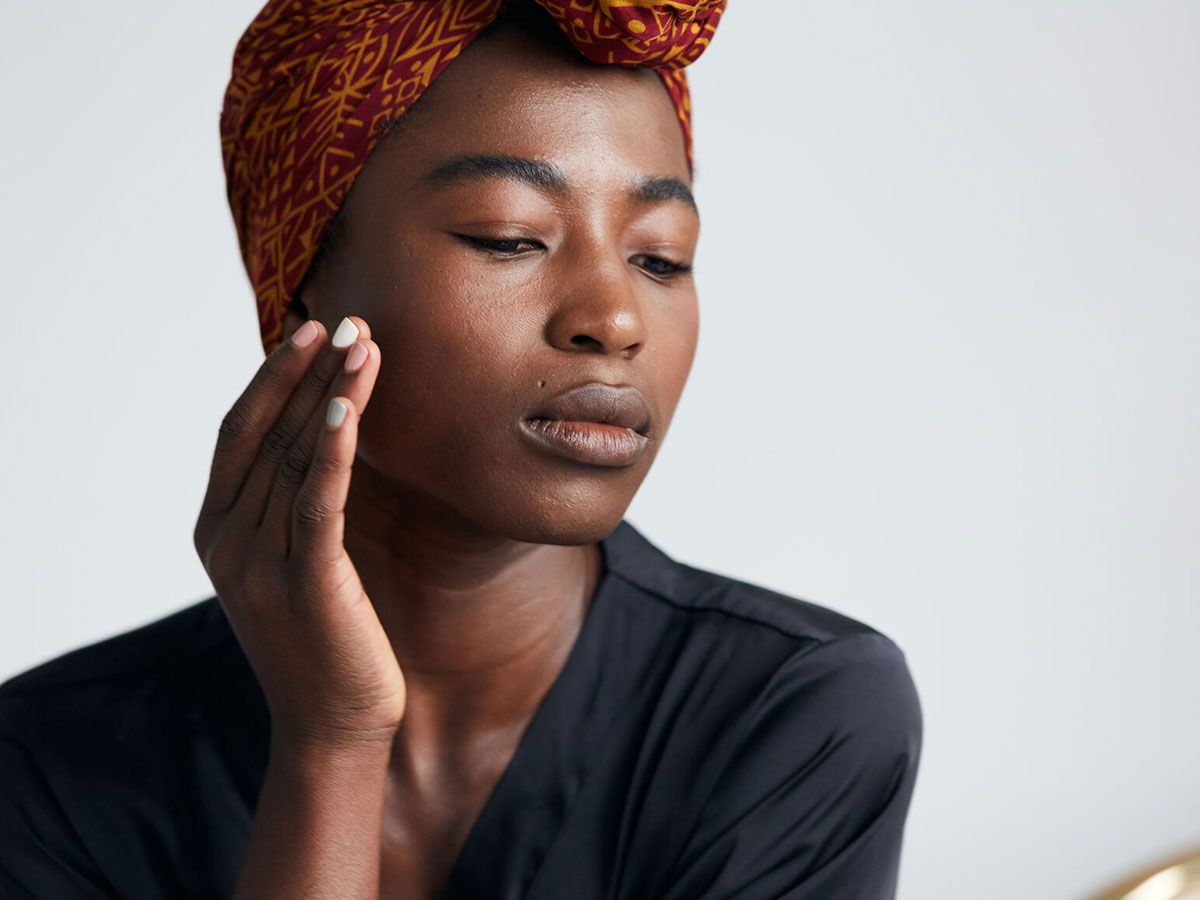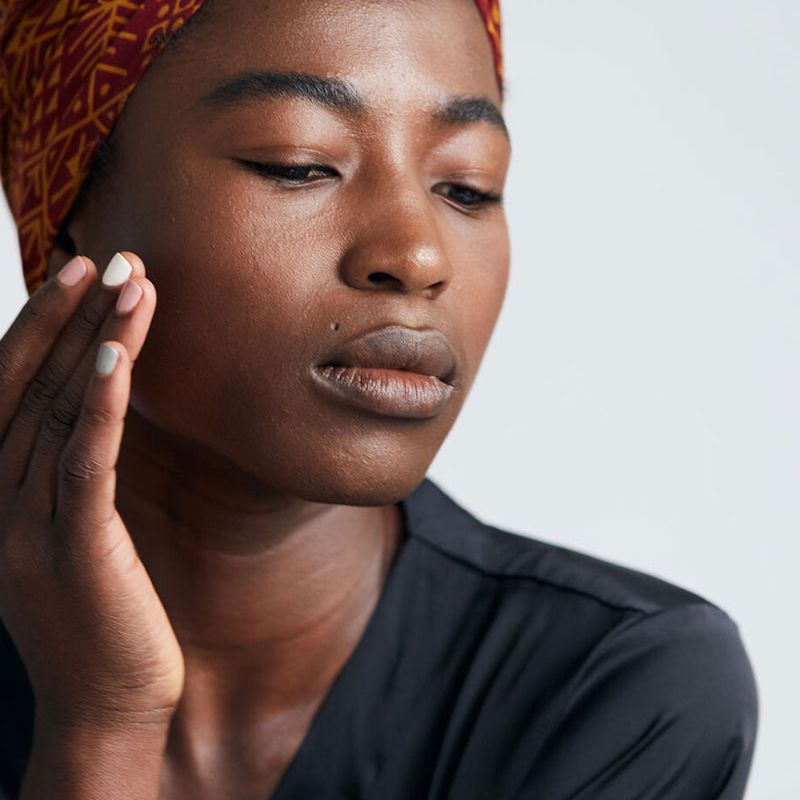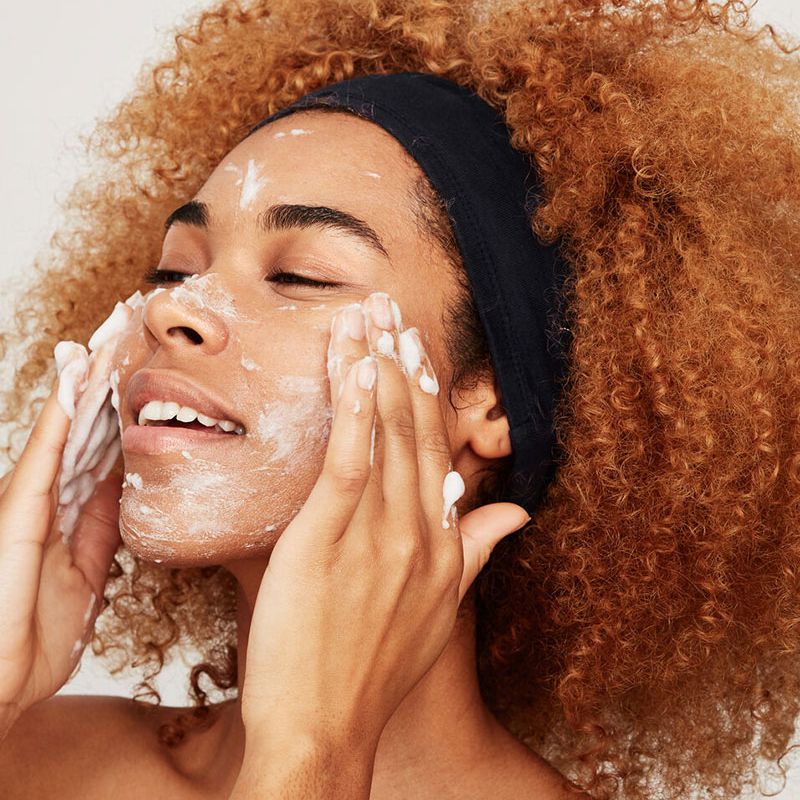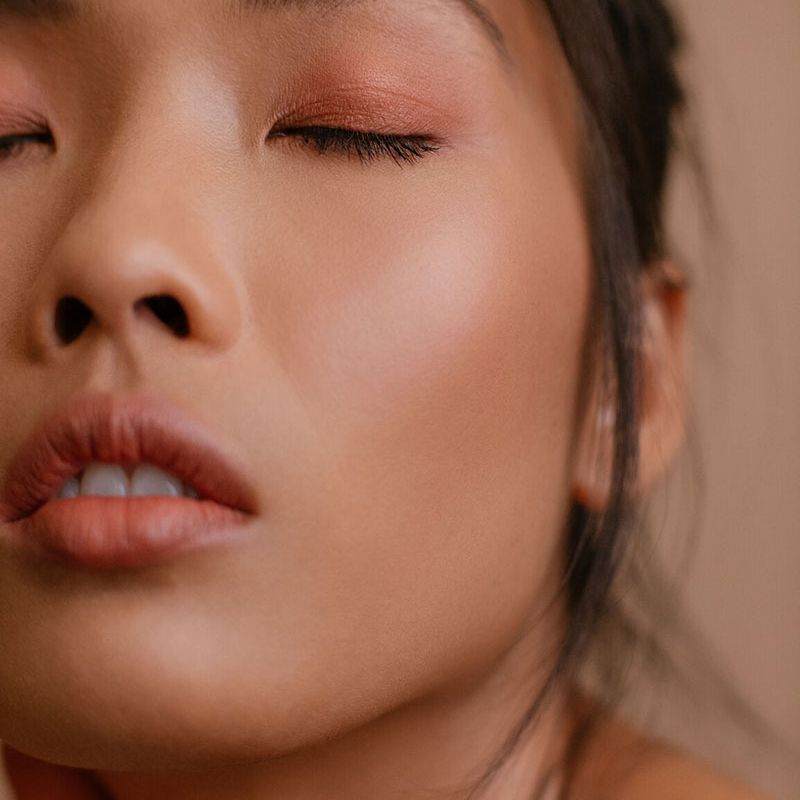Here's Why My Skincare Routine Has Been Doing More Harm Than Good

I’ve identified as someone with dry skin for years now. And for good reason. I have had dry skin! I built my skincare routine around this fact, packing it full of moisturizing products meant to breathe life back into my parched skin. It worked too, for a while. Blemishes were a thing of the past and my skin constantly felt hydrated (thanks to products like Embryolisse’s Lait-Crème Concentré).
That is, until 2019. In the past few months, my dry skin has suddenly taken a 180 turn, and now my skin is decidedly oily—seemingly out of nowhere. Blemishes are a thing I’m struggling with again, too, which is fun to be rediscovering at 28 years-old. At the end of every day, I’m left with oily skin, a skincare routine that’s designed for dry skin types, and wondering what I’m supposed to do now. How does your skin just… change?

How Your Skin Type Can Change
“Your skin type can change over time due to environmental factors, age, hormones and other health-related issues,” Michele Green, M.D., a New York City-based board-certified dermatologist, explains. “Yes, your skin can transform from oily to dry, combination, or sensitive, but it doesn’t just happen on its own. There are factors like climate that can cause minor or major adjustment to your skin type.” Similar to changes in your environment, Dr. Green adds shifts in your medications, stress levels, and diet can affect how much or how little oil your skin produces. “Acne is inflammation, which can be exacerbated by hormones released during stress. Acne caused by stress is usually accompanied by redness, itching, and an increased number of blackheads and whiteheads,” she says.
Meet the Expert
Dr. Michele Green is a board-certified dermatologist with an MD from Mount Sinai Medical School in NYC. Green worked for global skin care brands, L’Oréal, Johnson and Johnson, Bioré, and RoC on the research, development, and safety testing of worldwide product launches. She has published articles in professional journals including The Journal of American Academy of Dermatology and Cosmetic Dermatology.
Sonia Vaidian, M.D. of EHE Health, agrees. “If your skin has changed from dry to oily, stress could be a culprit,” she laments. “Stress causes the release of the stress hormone, cortisol, which causes your skin to produce more oil and can lead to breakouts. Humid, hot weather can cause oily skin as well as hormonal changes.”
While the weather has recently gone from hot to freezing in NYC, and my stress levels have been fairly up and down, my skin has survived issues like these before—why would now, suddenly, be the time my skin has such a reaction?
Meet the Expert
Sonia Vaidian, M.D, is the assistant medical director at EHE Health. She worked as a clinical reviewer for four years after graduating from St. Matthews University School of Medicine. Vaidian is ECFMG-certified.
If it’s Oilier, it’s Likely Hormonal
Personally, my skin was dry before and is suddenly producing more oil. According to both Green and Vaidian, this likely means certain hormones are fluctuating: “Skin changes can be exacerbated by fluctuations in our hormones. Changes in hormones such as cortisol and adrenal androgens can cause changes to the sebaceous glands which can cause an increase in sebum production causing skin to become oily,” Green explains.
Additionally, Vaidian says dehydration can cause overproduction of oil on the skin. “Have you recently been drinking a lot of coffee and not enough water? If your skin is severely dehydrated, it may start to overproduce sebum and oil to compensate for the lack of hydration, resulting in oily skin.” (For the record, I basically survive on cheese and coffee, so this is an extreme possibility.)

Your Skincare Might Be Doing More Harm Than Good
According to Green, just because I’ve used the same products for years with success doesn’t mean I’ll always have the same results—and, to my dismay, this happens often with skincare. “The products you’ve used for years can start to yield very little or no improvement. When this happens, it’s time to reevaluate your skincare and make the necessary adjustments,” she suggests. “It’s certainly helpful to change up your routine because your skin evolves over time.”
In fact, my skincare could be hurting my skin, she explains. “Using the wrong products for your skin type can have adverse effects. The wrong skincare regimen can also throw off your skin’s pH balance,” Green says. “If you are oily and use products that cause your skin to become dry, then that will result in breakouts. The same concept applies for someone who has dry skin.” In other words, I was using a skincare routine specifically designed for my dry skin, which worked while my skin was, well, dry. When my skin became oilier, however, my routine likely caused clogged pores and subsequent breakouts.
“You can ramp up your skincare routine by adding an exfoliant after cleansing. This is a key step in stimulating cell turnover to maintain a healthy complexion. You should also add a toner to help rebalance, and change your moisturizer something more lightweight. This will help it to penetrate deeper into your skin to repair and replenish,” Green says. Vaidian also recommends making sure all my products are non-comedogenic.

Your Skin May Change Again
While my skin did grow oilier once, that doesn’t mean it won’t revert back again. Like Green and Vaidian said, our skin type is influenced by a host of factors, and it’s not always easy to predict what it’s going to do. You just need to learn what it needs now, while it’s in flux. “If your skin type changes, it’s time to explore and learn what products and treatment works best for your skin as it goes through the transition,” Green says. “The first step is putting together a skincare routine. It’s important to know what products to use and the order in which they should be used.”
And You Can Keep Adjusting Your Routine to Compensate
Of course, if you suspect your skincare routine may be doing your skin more harm than good, you should see your dermatologist to get some recommendations on what the best course of action to take is. The most important thing, Green tells us, is that you listen to your skin. Make sure you’re adapting your skincare routine to support whatever your skin needs at this present moment—not what it needed before, and not what you want it to need in the future.
Next up: Experts say these face masks actually help heal acne scars.








